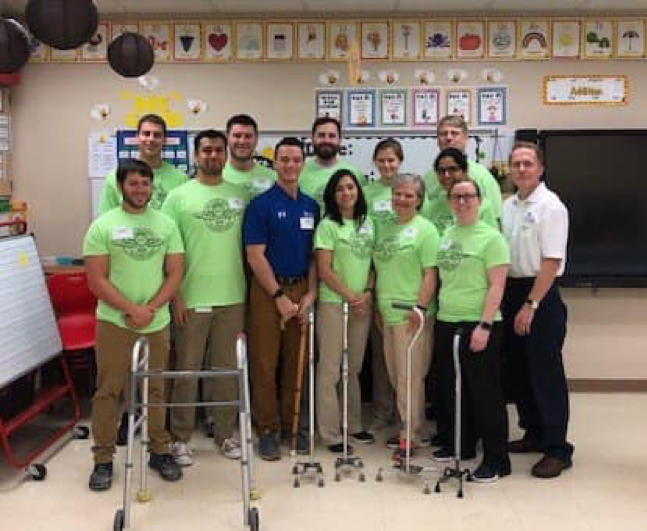College of Health Sciences focuses on bridging gaps in access to care close to home
Access to care is one of the most pressing issues practitioners encounter in both rural and urban areas. Americans face a slew of issues when seeking medical care: Lack of insurance, transportation, finances, and time, to name a few. That’s why the UK College of Health Sciences sends faculty and students to offer no cost health care to local populations in Kentucky through events like the Remote Area Medical brigade.
In June, a group of CHS physical therapy faculty and students traveled to Hazard, Kentucky to participate in Remote Area Medical (RAM), a major nonprofit provider of free mobile health care clinics.
“Initially, RAM was set up by physicians and health care providers who were already participating in international medical brigades,” explained Pat Kitzman, PT, PhD, associate dean for research and professor of physical therapy and rehabilitation sciences. “What started as international outreach quickly evolved into a domestic effort when we realized the great need here in the United States, especially in rural areas.”
At this year’s RAM event, 516 Kentuckians received much-needed access to dental, visual, and physical therapy services. “These people are in the greatest need,” Kitzman continued. “Usually, they’re underinsured or not insured at all. RAM provides a sort of one-stop-shop for patients; they come in and receive all the medical services they need in the course of one day.”

Students also benefit from the weekend of free medical care. “Physical therapy (PT) is a service profession and these events are a perfect opportunity to reinforce that concept,” said Charles Hazle, PT, PhD, associate professor of physical therapy, who helped direct and provide PT services at the event. “Students develop many skills at this type of outreach. They are required to gather information, prioritize the patient’s issues, recognize influential factors, and reason with the patient toward the most beneficial and efficient care.”
Additionally, participating in service-learning opportunities like RAM strengthens a student’s understanding of what it means to provide holistic health care.
“Students are exposed to some of the challenges within healthcare—including people who are uninsured; people who are insured, but cannot afford their co-pays; and people who are insured but in need of services not covered by their insurance,” said Ramona Carper, PT, DPT, assistant professor of physical therapy, who helped led UK’s PT team at RAM. “It allows students the opportunity to educate the community and other health care providers about the many benefits of the services we provide as physical therapists.”
Kitzman and his team also provided stroke screening and information through his program Project CARAT (Coordinating and Assisting the Re-use of Assistive Technology). “We encouraged everyone we saw to have a stroke screening,” he said. “The other service we offered this event was our refurbishing and reutilization program. Through Project CARAT, we bring used medical equipment, clean it, fix it, and give it away for free. One of our sites is actually based in Hazard. If people need canes, walkers, or one or two wheelchairs, we hand it off to them on the spot.”
For many of those working the RAM event, it was an opportunity to do what they love most: serving others.
“Physical therapy is a service profession, so it is not surprising that the field is comprised of many people who are service minded,” Carper said. “I have personally been drawn to serving others for decades and used to believe I would spend much of my life serving in another country. However, I have come to realize you can travel five minutes away from your home and find people in need. It’s a privilege to serve people in the community where I work.”
Some photos courtesy of the RAM Facebook page